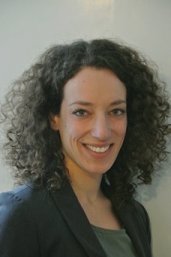Evelien Berends - My career as a scientist
Evelien Berends - My career as a scientist

Evelien Berends looks back on her career to date, starting at Utrecht University where she studied Biomedical Sciences.
Degree Programme(s): Biomedical Sciences (BSc) (2004 – 2008); Infection & Immunity (2008-2010) (MSc)
Currently with: New York University School of Medicine
Position: Post-doctoral Fellow
Professional Experience: PhD Researcher, UMC Utrecht
Other Academic Experience: Board Member at M.B.V. Mebiose, Study Association for Biomedical Sciences, 2007-2008; Board Member at Suzanne Hovinga Foundation, 2012-2015.
When I was still in secondary school the thought of becoming a doctor did cross my mind on occasion. But I can't stand the sight of blood and I don't like having to look at people suffering, so this wasn't going to be for me, really. What did interest me was all the things that can go wrong when people fall ill and the science this involves. That is why enrolling in the Biomedical Sciences programme was a relatively easy choice for me to make. In the final year of my undergraduate programme I was introduced into the wonder that is our immune system and how it fights infectious diseases. I was immediately grabbed and decided to enrol in the Infection & Immunity Master's at Utrecht once I'd finished my year on the Mebiose board.
I think the apprenticeship also gave me direction in the early part of my career.
One of the defining decisions I made while at Utrecht was to go to the US for a six-month apprenticeship at the University of California San Diego. This wasn't just a lot fun doing, I also learned a great deal while there and was offered the chance to have my very first scientific article published. I think the apprenticeship also gave me direction in the early part of my career. My efforts in San Diego were rewarded with the Young Talent graduation award by the Koninklijke Hollandsche Maatschappij der Wetenschappen [Royal Dutch Academy of Sciences]. That really was a great honour. But perhaps more important than that was that I was offered the chance to work with a German postgraduate student who was working very closely with several Utrecht scientists. That kept me in touch with how things were going back home and allowed me to apply for a job as a PhD Researcher with the Medical Microbiology Department at the UMC Utrecht.
Research, I found out, was something I really wanted to pursue indefinitely by then. Things certainly don't always go to plan and there are no guarantees for success. You are only offered temporary contracts and are never sure whether there will be sufficient research funding available to you. But this is what I love doing. Discovering something no one else before you has is a truly riveting experience. Drafting and testing your hypotheses, acquiring knowledge and doing all that in an area where infectious diseases and immunology meet.
Discovering something no one else before you has is a truly riveting experience.
Going abroad to do a postgraduate research project is not uncommon among researchers. Me and my partner (also a researcher) went looking for a suitable laboratory in a city where both of us would be able to find work. That city was New York. At Utrecht they'd set up a partnership with a group at New York University with whom they'd been collaborating for several years by then. I was invited to meet the group leader in the Netherlands. We hit it off and a position had opened up that suited me; I was taken with the subject and my partner had also found some potential labs in New York that might accommodate him. Things would move rather swiftly from then on in. I started off here in the summer of 2015, when I began writing a research proposal for the Rubicon research scholarship and only recently found out that I was awarded the funding that will allow me to conduct two years of research. It gives me the chance to put my ideas to practice and build my own research set-up that will, hopefully, allow me to start my own research group in future.
I want to find out how one of the main causers of life-threatening infectious disease, staphylococcus aureus, is able to frustrate the body's defensive response to this bacterium. The bacterium produces pore-forming toxins that kill off the immune system's white blood cells and what I'm trying to figure out in my lab is how these prevent humans from developing a protective immunoresponse to it. The New York research group is the perfect place for me to start my research. It offers a great deal of possibilities, they adopt a high work-rate and I am given every opportunity to work with and learn from some of the best scientists around. It's a great adventure.

